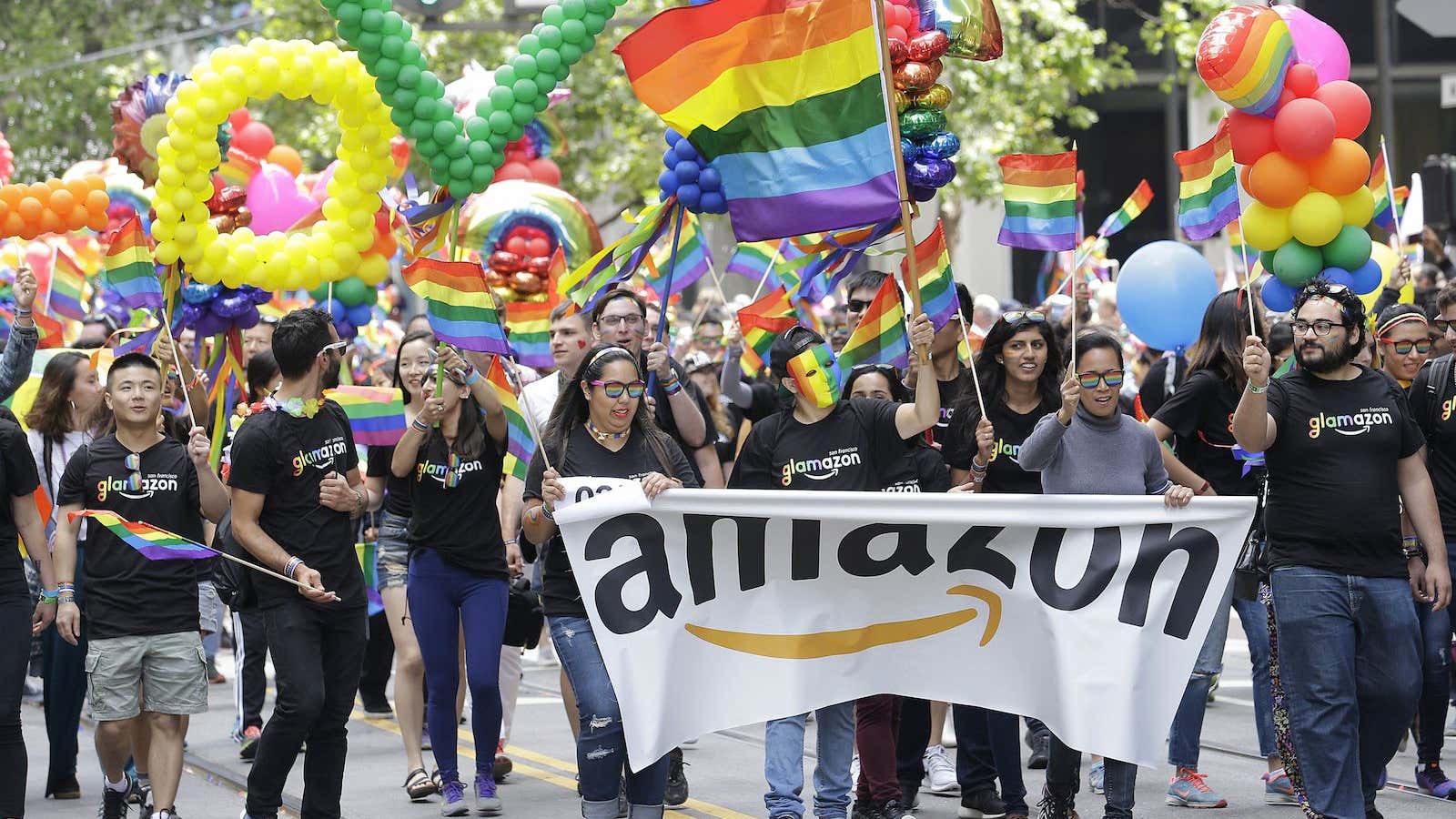The New York State comptroller is asking the CEOs of 41 companies—including Amazon, Google, Microsoft, Facebook, and AT&T—to stop making corporate donations to politicians who support anti-LGBTQ policies.
For example, in an Aug. 22 letter to UPS posted online yesterday (pdf) by the advocacy group Zero for Zeroes, comptroller Thomas DiNapoli argued that funding politicians with discriminatory platforms and agendas constitutes a big reputational risk for companies that purport to be allies of the queer community. The negative publicity and boycotts that could emerge as a result of the apparent conflict between companies’ values and their spending could cost them a lot of money—and, by extension, make the public pension fund that DiNapoli oversees lose a lot of money as well.
DiNapoli urges the companies to review their policies and procedures for corporate political spending “to determine whether spending is aligned with corporate strategy and values,” with the goal of “mitigating the financial ramifications of misalignment.” In other words, funding anti-LGBTQ politicians isn’t just bad ethics, it’s bad business.
The comptroller was prompted to write the letters after receiving one himself (pdf) from Zero for Zeroes, alerting him to the fact that 49 companies—despite receiving a perfect score on the Human Rights Campaign’s corporate equality index—had donated a total of $5.8 million to members of Congress with anti-LGBTQ records via corporate PACs. Lawmakers called out for their actions on Zero for Zeroes’ website include Texas senator Ted Cruz (who publicly sided with a baker who refused to make a cake for a same-sex couple in a 2018 Supreme Court case) and Utah senator Mike Lee, the primary sponsor of the First Amendment Defense Act, which aims to block the federal government from taking action against those who discriminate against queer people.
A Zero for Zeroes campaign highlights the fact that many corporate behemoths now make a big show of being LGBTQ-friendly in an effort to demonstrate their commitment to inclusivity and equality, but the reality is more complicated. This summer, for example, nearly 100 LGBTQ employees at Google petitioned San Francisco Pride to exclude the company from official celebrations, arguing that Google had lost the right to sponsorship and representation at Pride because of its failure to instate adequate policies protecting LGBTQ creators on YouTube and other company-owned platforms from discrimination and harassment. (San Francisco Pride declined to remove Google as a sponsor.) Google and YouTube are also being sued by a group of LGBTQ creators who allege that the companies unfairly restrict and demonetize their videos.
It’s no surprise that companies’ values don’t always line up with their actions. But the comptroller’s letter, the Google employees’ petition, and the YouTube creators’ lawsuit demonstrate the variety of ways that organizations are now being pushed to do better.
